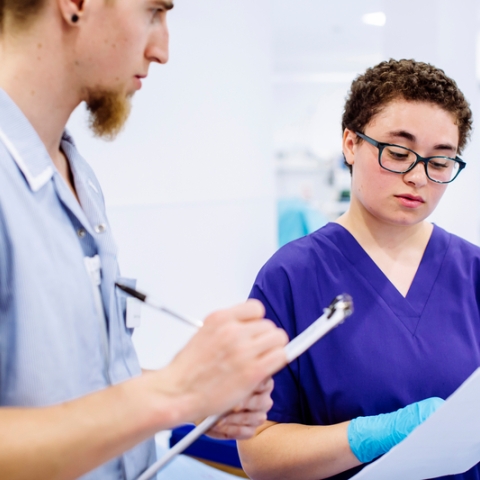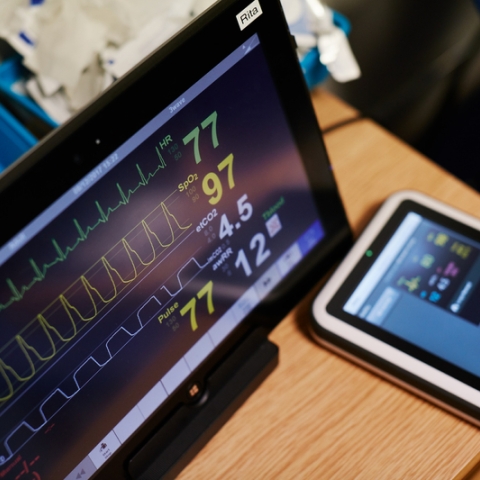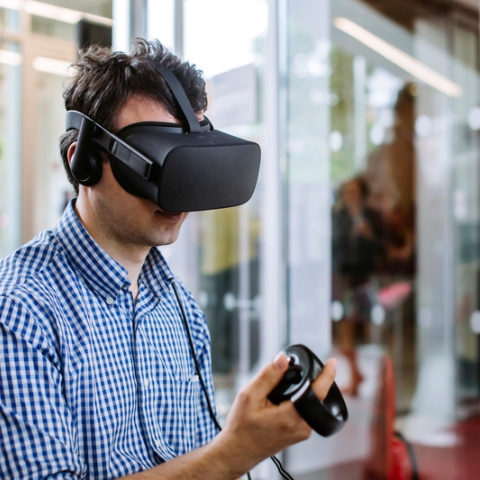

Clinical outcome modelling research
Explore our research in clinical outcome modelling
Clinical outcome modelling involves analysing health data to calculate the risk of a particular outcome happening to a patient. Outcomes could be anything from hospital admission to something as severe as death. We model clinical outcomes data to develop and evaluate new techniques for managing patient care to save lives and make healthcare services more effective, efficient and safe.
Our work, in collaboration with colleagues at Portsmouth Hospitals University Trust, has underpinned the development of the National Early Warning Score (NEWS) by the Royal College of Physicians. NEWS standardises the assessment and response to acute illness and is being adopted by every NHS acute hospital and ambulance service in Britain.
We use statistical and computing techniques within machine learning and data science to analyse large quantities of clinical data. We develop and evaluate mathematical or computer models that represent specific problems to make accurate predictions for patients. Our research is regularly published in leading journals including Resuscitation, Critical Care Medicine, and British Medical Journal Quality & Safety.
We're experts in taking healthcare data, using it securely, cleaning it to remove wrong or ambiguous data, and analysing it. Through working closely with clinical colleagues – particularly within Portsmouth hospitals – we've developed a strong understanding of what data represents about patients and their care. We draw on the clinical expertise of our health service providers to interpret our results. Working with our NHS partners, we use datasets of anonymised patient data which include vital signs, blood test results, diagnoses and other clinical information.
Industrial partners use the results of our research to develop systems, products and services that solve healthcare challenges. Our work helped The Learning Clinic Ltd develop a mobile clinical system using iPhones, iPod Touches and iPads to monitor and analyse patients' vital signs from their hospital bedside. The system calculates an early warning score that can give an indication of deterioration and trigger an escalation in care. Originally known as Vitalpac, it is now called CareFlow Vitals and owned by System C Ltd.
Collaborations and funders
As well as Portsmouth Hospitals University Trust, we have partnered with Oxford University Hospitals NHS Trust, University of Oxford, University of Southampton, Bournemouth University and industrial partners The Learning Clinic Ltd and Xim Ltd.
We have received funding from the National Institute for Health Research (NIHR), the Health Innovation Challenge Fund and Innovate UK Knowledge Transfer Partnership (KTP).
Project highlights
-
FOBS: Frequency of Observations
A collaborative research project led by the University of Portsmouth and involving the University of Southampton, Oxford University and Portsmouth Hospitals University Trust, which aims to provide the first evidenced-based protocol for patient monitoring, which will be both safe and achievable across all acute NHS hospitals
-
The HAVEN Project
A collaboration between the University of Portsmouth, University of Oxford, Portsmouth Hospitals University Trust, and Oxford University Hospitals NHS Foundation Trust, which aims to produce a hospital-wide IT system that enables a continuous risk assessment in all hospital patients, and predicts those at risk of deterioration
-
National Early Warning Score (NEWS) 2
Standardising the assessment of acute-illness severity in the NHS – first produced in 2012 and updated in December 2017, NEWS2 is a system to standardise the assessment and response to acute illness, which has received formal endorsement from NHS England and NHS Improvement to become the early warning system for identifying acutely ill patients – including those with sepsis – in hospitals in England
-
Better Care for Abdominal Emergencies (BCAE)
Analysing outcomes for all patients with an abdominal emergency, whether they have surgery, an alternative treatment or no treatment.
-
PACIFIC-19 project
The University of Portsmouth and Portsmouth Hospitals University NHS Trust responded together in the early days of the COVID-19 pandemic to bring our research resources to bear on questions that could be answered based on the data available in the hospital and using the University's analysis skills.
Discover our areas of expertise
Clinical outcome modelling is 1 area of expertise in the Health Informatics research area. Explore the others below.
Applied health informatics

Digital wellbeing

Cross reality applications

Research groups
Centre for Healthcare Modelling and Informatics
We're working to develop technology that makes work more efficient for the organisations that form the National Health Service (NHS).
Interested in a PhD in Health Informatics?
Browse our postgraduate research degrees – including PhDs and MPhils – at our Health Informatics postgraduate research degrees page.


